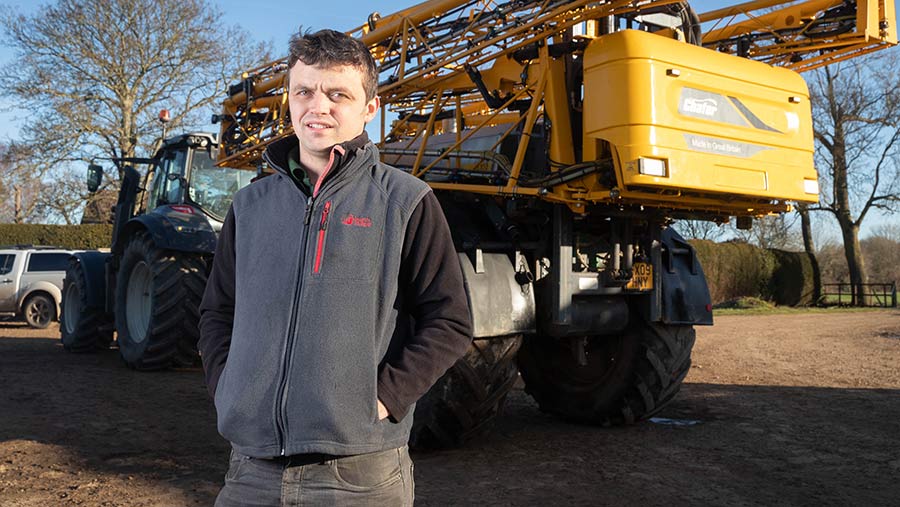Opinion: Three years of BPS reductions ‘predictably unpredictable’
 Mike Neaverson © Tim Scrivener
Mike Neaverson © Tim Scrivener I remember being distinctly indifferent when the phasing out of the Basic Payment Scheme (BPS) was announced back in the days of post-Brexit, pre-pandemic Britain.
As we enter the middle year of BPS reductions, and with the ability to sign up to its alleged replacement, the Sustainable Farming Incentive (SFI), have I changed my mind?
See also: Opinion – seeing red at Red Tractor’s red tape
What I am about to say is related to my bread-and-butter only – lowland arable farms in the east of England.
We might both read the same magazine, but really, I’m about as far removed from a sheep farmer’s situation in Cumbria as I am from being an astronaut.
I know nothing about grass or hills, and I prefer to save shouting about subjects I am ignorant of for X.
Prediction one, then: More land would become available as farm profitability dropped, enabling opportunities for growth for those willing to take it, and rents would drop in proportion to BPS.
I was wrong. In this neck of the woods, we’ve had three reasonable wheat harvests on the bounce, two of which have seen the potential for some excellent prices.
Arable profitability over the last couple of seasons has therefore been anomalously high, more than making up for any reduction in BPS.
I’m sure that sentiment often drives rent level more than spreadsheets, and I wonder whether some view past performance, perhaps not incorrectly, as an indication of future margin.
I take great pleasure in introducing myself to land agents as a “Professional Underbidder”, and I’ve seen no evidence that farm business tenancy (FBT) rents are reducing.
With winter cropping looking miserly, and wheat futures back below £200, it will be interesting to see where this ends up. We’ve been in a two-year bubble, which I suspect is about to burst.
Prediction two: The SFI wouldn’t be worth signing up for on lowland farms.
I was partially right on that one, and I’m still struggling to get excited about the SFI.
Some options are worth it, where you’d basically be doing them anyway.
But taking land out of production for £600/ha before some significant costs seems, to me, a little bit like giving up.
On our moisture retentive soils we should consistently be able to achieve a better margin than that, and I trust our grain merchant to pay on time more than I do the Rural Payments Agency.
Personally, I would rather put my energy into trying to farm better, even if it comes with greater financial risk.
But I completely understand why those on less productive soil types would find the decision much more difficult.
What then, for the final three years of BPS reductions? Well, I think I’m going to stick with my original predictions.
Rents will come down to something like parity, with the SFI options for only as long as His Majesty’s government allows you to put your whole farm into it. Then they will drop considerably.
It will be for a Labour government to wrangle with the conflicting positions of large swathes of England growing pollen and nectar mix, the economics of import parity and the fundamentals of food security in a politically unstable world.
But what I do know is that I think we can sum up the first three years of BPS reductions as “predictably unpredictable”.

